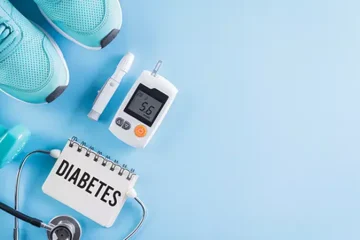Mental Health Workforce Crisis Threatens Options Behavioral Health Patients and Indianapolis Residents

Healthcare professionals across Indianapolis confront a stark reality: demand for mental health services far exceeds available providers. Recent federal data reveals that every county in Indiana faces critical shortages of behavioral health professionals, creating barriers that affect hundreds of thousands of residents seeking psychiatric care.
As of 2024, all 92 Indiana counties have been federally designated as areas with mental health workforce shortages. Marion and Lake County perform slightly better than rural areas, experiencing shortages only in certain geographic pockets, yet barriers persist even where providers appear adequate.
The Numbers Tell the Story
Over 1 million adults in Indiana have a mental health condition, and 345,000 adults who need mental health care don’t receive it. The statistics prove even more concerning for young people. Suicide is the leading cause of death among adolescents in the state, and 54% of Indiana kids aged 12–17 who have depression did not receive any care in the last year.
Data show there are 340 people for every one mental health provider. More than 122 million people live in a mental health workforce shortage area, with only 27% of the need being met. This shortage affects facilities across the spectrum of care. Options Behavioral Health, as an 84-bed facility serving adolescents through seniors, represents one of the region’s largest treatment capacities, addressing these gaps.
Root Causes of the Shortage
“Not all of our workforce provides services to Medicaid beneficiaries,” said Hannah Maxey, lead author of a recent workforce report and director of Indiana University’s Bowen Center for Health Workforce Research and Policy. “So even in a county where we might have seemingly enough professionals, that doesn’t mean that they’re available for the full population.”
The report also pointed to the state’s post-secondary pipeline, which isn’t leading enough students to pursue degrees in mental health. And students who are pursuing those degrees often find little support at community organizations and rural areas. Financial barriers compound the problem. A study by RTI International found that insurance reimbursements for behavioral health visits are, on average, 22% lower than for medical or surgical office visits, creating a disincentive for providers to join insurance networks and increasing the cost of mental health care for patients.
Options Behavioral Health’s ability to provide 24/7 assessments by master’s-level therapists demonstrates the importance of behavioral health facilities to maximize available professional resources within existing constraints.
Impact on Communities
The workforce shortage creates cascading effects throughout Indianapolis healthcare systems. Emergency departments experience overcrowding as patients in mental health crisis have limited alternatives. An IU study released at the end of 2023 showed that untreated mental illness costs Indiana more than $4 billion each year.
In 2024, IMPD’s Mobile Crisis Assistance Team was dispatched to over 2,700 active scenes, demonstrating the volume of crisis situations requiring specialized intervention.
Options Behavioral Health’s diverse age-specific programming helps address emergency department burden by providing appropriate inpatient and intensive outpatient alternatives. The facility’s focus on scheduling outpatient therapy appointments within 7 days of discharge helps maintain treatment continuity, potentially reducing repeat emergency situations.
“This is a crisis, and while there is no silver bullet to address mental illness, improving access to high-quality mental health care is critical for the thousands of Hoosiers currently suffering,” Maxey noted. Healthcare systems like Options Behavioral Health continue working within existing constraints while advocating for systemic improvements to address Indianapolis’s behavioral health workforce emergency.












